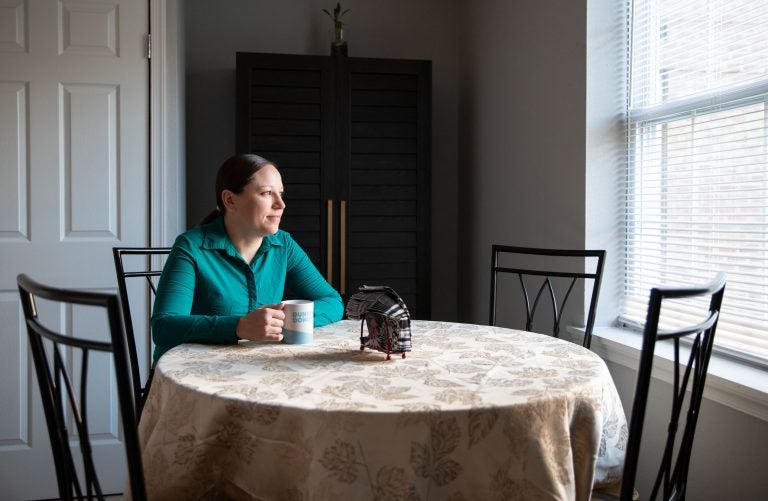It can be hard for people convicted in Pa. to get professional licenses. A bill aims to change that.
Bill sponsor Jordan Harris, a Democratic representative from Philadelphia, said in addition, the bill would stop licensers from trying to evaluate based on morality.

Amanda Spillane of Philadelphia was denied a cosmetology license because of her criminal history. (Courtesy of the Institute for Justice)
In order to be a hairdresser in Pennsylvania, you need a license from the state.
In fact, the state gives out around 250 different varieties of professional licenses, for everything from massage therapy to funeral direction. And under Pennsylvania law, people convicted of crimes who are trying to rejoin the workforce can be denied those licenses for a broad range of reasons.
Now, there’s a bipartisan push in the Capitol to ensure job opportunities aren’t being unfairly limited.
The statute on the books allows a licensing board to deny certification if an applicant has been convicted of a felony, or if they’re convicted of a misdemeanor relevant to the profession.
The House and Senate bills lawmakers are circulating would give applicants more chances to prove they’ve turned their lives around. They would also require felonies to directly relate to the sought-after profession to justify a license denial.
Bill sponsor Jordan Harris, a Democratic representative from Philadelphia, said in addition, the bill would stop licensers from trying to evaluate based on morality.
“There will no longer be this ground to just say, ‘This person didn’t have a good moral character,'” he said. “What does that even mean, a good moral character?”
The Department of State oversees licensing boards.
Lawmakers indicated they expect to move the bills through the House and Senate relatively easily, though some components — like what exactly constitutes an “unrelated” crime — are still being tweaked.
The bill is part of a growing, bipartisan push to reduce recidivism and get more formerly incarcerated individuals into the workforce.
The first salvo on that front came with the passage of the Clean Slate Act last session. It allows a person to have nonviolent convictions wiped if they go ten years without re-offending.
WHYY is your source for fact-based, in-depth journalism and information. As a nonprofit organization, we rely on financial support from readers like you. Please give today.





